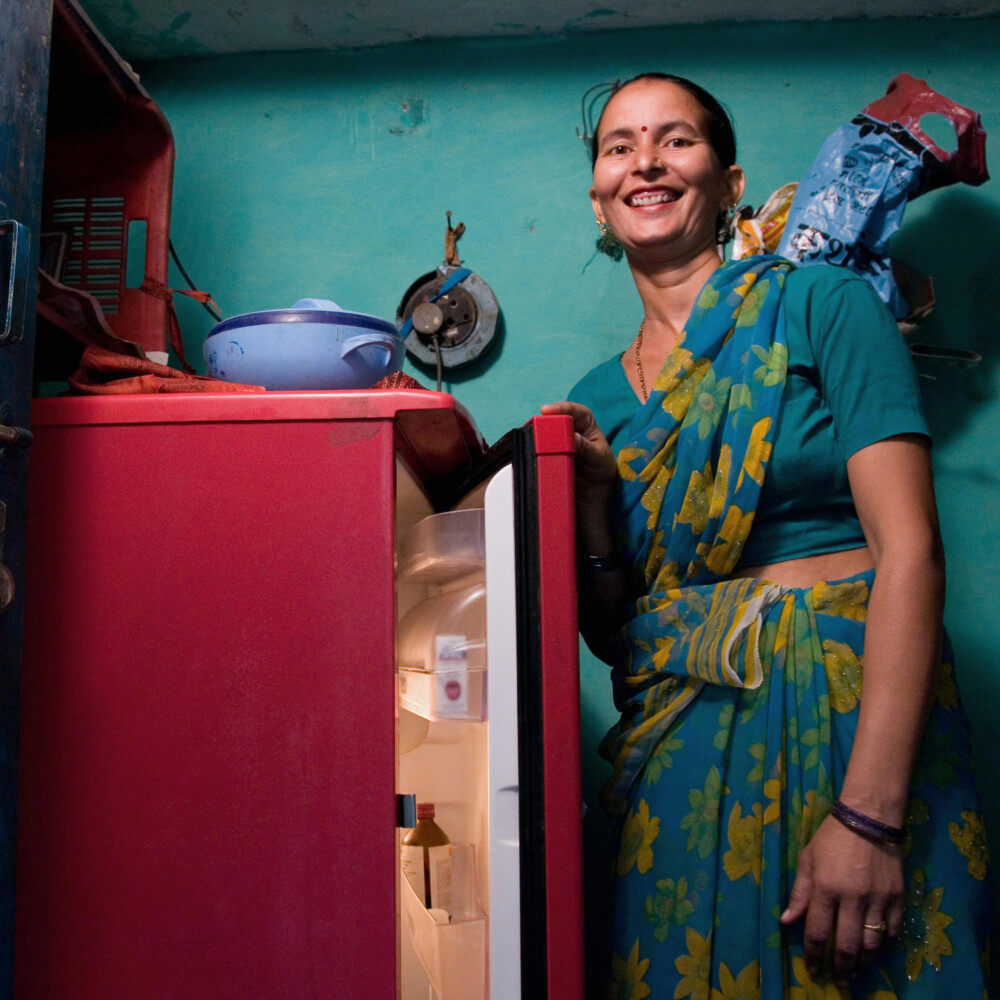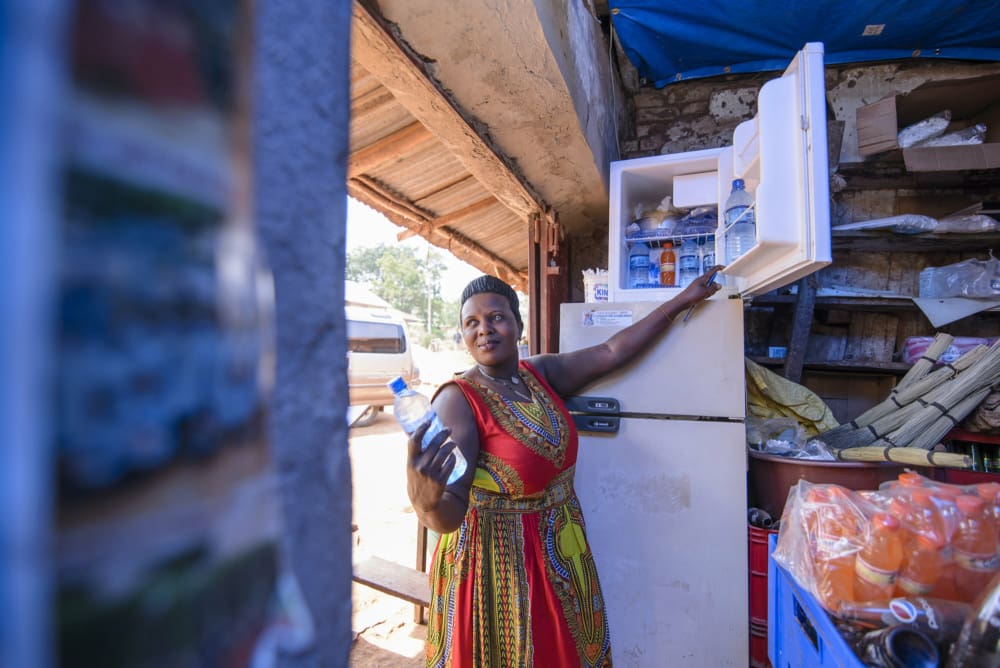
Refrigerators, however, are one of the most challenging off-grid appliances to design and develop to be both energy efficient and cost-effective. Therefore, the global market remains in the early stages of development.
The energy consumption of an average conventional refrigerator compressor currently can only be supported by the largest available off-grid solar systems. Some super-efficient refrigerators are now being designed explicitly for off- and weak-grid settings to consume less energy, some as low as 0.1 kWh per day.
If efficient, appropriately-priced products become accessible to all households that have the purchasing power to buy a refrigerator, spending could increase from $75 million today to $1.1 billion by 2020, even despite lower per-unit costs.

